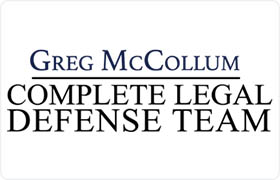Murrells Inlet Misdemeanor Lawyer, South Carolina
Sponsored Law Firm
-
 x
x

Click For More Info:
-
Greg McCollum Complete Legal Defense Team
1012 38th Avenue North Suite 202 Myrtle Beach, SC 29577» view mapCriminal Defence Law Complete Legal Defense Team
Our goal at the Complete Legal Defense Team is to examine the facts and circumstances completely and help our clients.
800-634-0690
Not enough matches for Murrells Inlet Misdemeanor lawyer.
Below are all Murrells Inlet Criminal lawyers.
David E. Rigney
✓ VERIFIEDDivorce & Family Law, Criminal, Traffic, Business, Immigration
If you have been injured or are disabled, give me a call. If you need legal advice before you sign a contract, enter into a lease, or sign a business... (more)
FREE CONSULTATION
CONTACTThomas William Winslow
Criminal, Divorce & Family Law, Personal Injury, Medical Malpractice
Status: In Good Standing
William Grammer
Criminal, Traffic, DUI-DWI, Felony, Misdemeanor
Status: In Good Standing Licensed: 26 Years
FREE CONSULTATION
CONTACTThomas Winslow
Products Liability, Medical Malpractice, Criminal, Personal Injury
Status: In Good Standing Licensed: 14 Years
Sheri L. McAllister
International, Government, Divorce & Family Law, Criminal
Status: In Good Standing
 Greg McCollum Myrtle Beach, SC
Greg McCollum Myrtle Beach, SC AboutGreg McCollum Complete Legal Defense Team
AboutGreg McCollum Complete Legal Defense Team Practice AreasExpertise
Practice AreasExpertise
